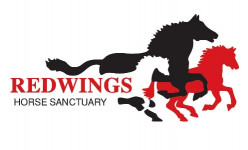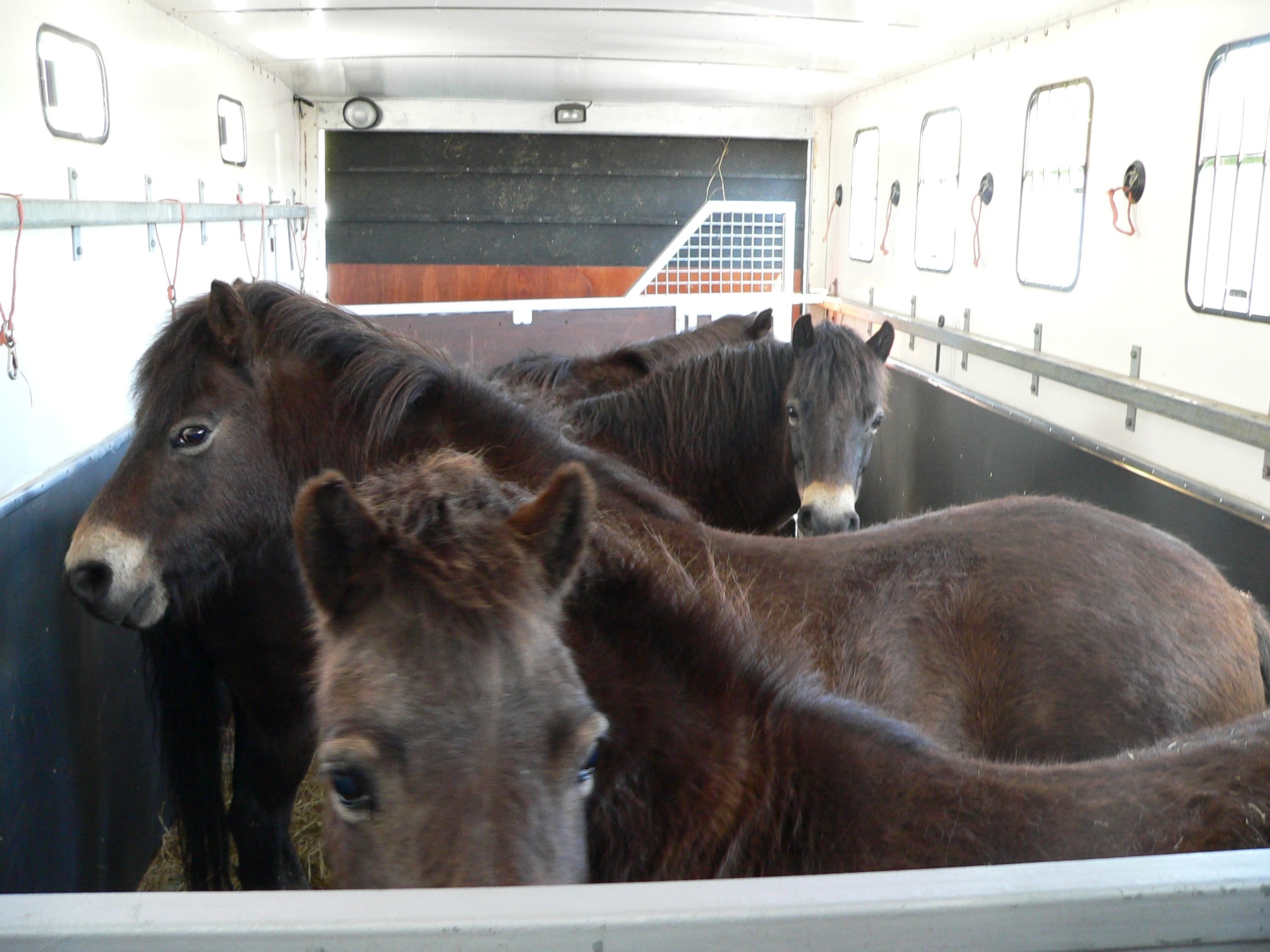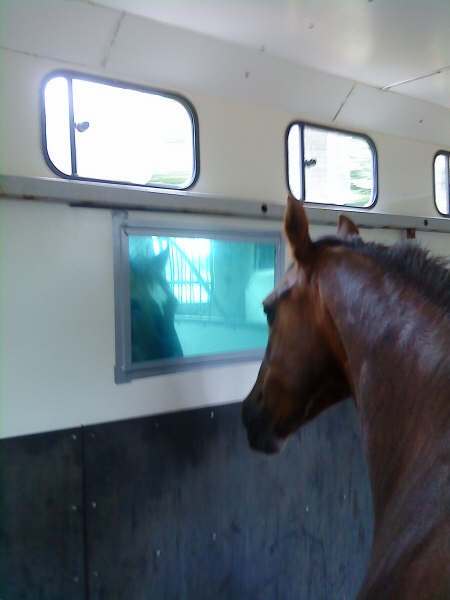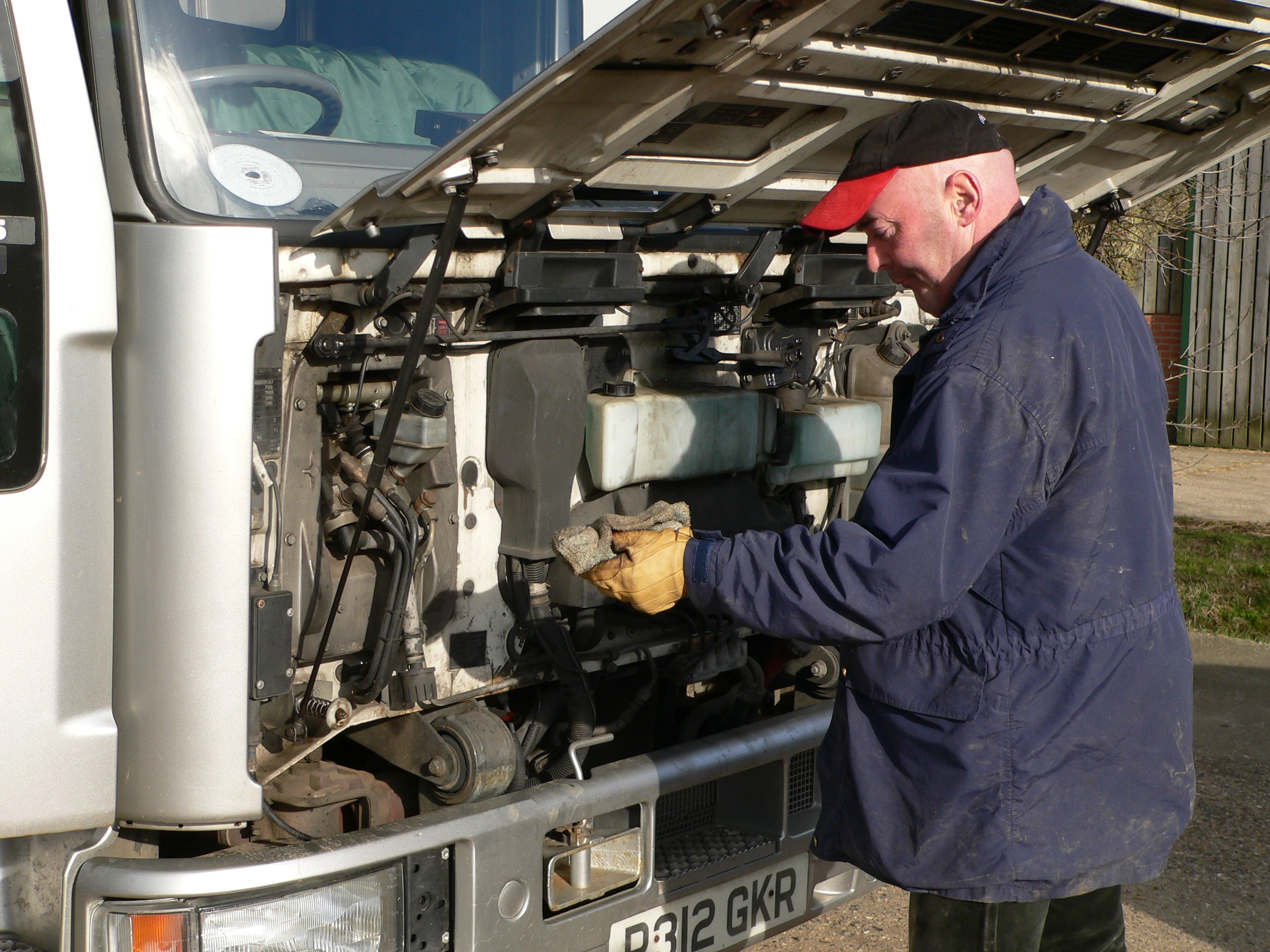Posted: 6th July 2022 | Back to news feed


As legislation to ban the export of British live animals for slaughter makes its way through parliament, and the EU reviews regulations around long-distance horse transport in Europe, there is renewed focus on the mental and physical toll a journey can take on any equine.
However well-travelled horses are, research shows that stress is common in transit and can lead to raised cortisol levels, even in individuals not exhibiting obvious signs of anxiety.
Redwings has a long history of transporting horses, often those that are nervous, unhandled or with established travel-related behaviour issues. By taking steps to reduce the stress involved, the charity has an exceptional record of helping rescued residents overcome their reluctance to load and ensuring journeys are as safe and comfortable as possible.
Redwings share some top loading and travelling tips that can increase both horse and owner confidence as they head for the road.
Make light work of loading:
- Remember that travelling is a big ask of a horse – being enclosed in a small space, often separated from companions with a limited field of vision and unpredictable sights, sounds and smells goes against many of a horse’s natural instincts.
- Practice at home, then practice in other places. Horses don’t generalise easily so can be affected by the novelty of different environments and vehicles, even when they load happily onto their usual trailer at home.
- Choose somewhere safe, level and quiet for loading. If you’re at a show and your horse is uncertain, try moving the vehicle to another spot where there is less distraction and fewer eyes putting pressure on you.
- Allow plenty of time and avoid letting any kind of pressure translate into tension your horse can pick up on.
- Allow the horse to look, touch and sniff the box and ramp, having the chance to check things out can help them feel less anxious.
- Make the experience as positive as possible. Offer food as encouragement so they form pleasant associations rather than negative ones.
- Watch for subtle signs of anxiety in your horse and address it, rather than allowing their stress levels to escalate
- Avoid blaming the horse if they aren’t co-operating. Horses are sensitive to small changes such as already feeling stressed as they approach the vehicle, sunlight making the inside of the box or trailer seem darker or remembering an anxious moment that happened the last time they travelled.
- Download Redwings’ free handling and training leaflet for more practical ideas to help you and your horse work better together.
On the road:
- As herd animals, horses are hard-wired to feel safer with other equines. Horses have been shown to be less stressed when travelling with a companion.
- Stable mirrors can be used during transit too. Redwings regularly uses mirrors so the horse can see their reflection if having to travel alone.
- Ventilation is key. Poor circulation, particularly when stationary, can quickly create unhealthy air quality.
- Research shows that allowing a horse more room in a vehicle improves their balance by allowing them to widen their stance. Horses show fewer signs of stress when able to balance naturally.
- There is no conclusive evidence that facing forwards, backwards or sideways is consistently preferable for reducing travelling stress. When Redwings travels groups of horses loose, individuals often choose different positions from each other.
- Driver skill is key to keeping a journey smooth and reducing stress for equine passengers. The time taken to accelerate, brake, make a turn or go up or down inclines should be considerably increased when travelling with horses. Consider investing in specialist training or getting practice with an experienced driver to improve your own confidence and ability.

Plan ahead:
- Always carry plenty of ‘just in case’ supplies whenever you travel. Include water, food and first aid kits for horses and humans, plus spare head collars and lead ropes.
- Plan your route carefully, especially if it’s a journey you haven’t taken before. Look out for low bridge heights, narrow roads or anything else that could be problematic.
- Check your route for roadworks or other delays before setting off.
- Make sure your vehicle is well-maintained, especially the floorboards, and check oil, water, tyre pressure and electrics in good time before departure.
- Have a specialist equine road recovery package.
- Stay up to date with legal requirements including vehicle load, vehicle safety, driver qualifications and insurance.

Remember that even horses who aren’t regularly travelled may need to be moved to see the vet or relocate, so helping every equine be familiar and comfortable with what’s involved will always be time well spent.
For more information visit the Redwings website at www.redwings.org.uk
The Equestrian Index newsfeed is compiled from articles submitted by advertising members and expresses the opinions of those members. Watsons Directories Ltd shall not be held liable for any inaccuracies or mis-statements therein.